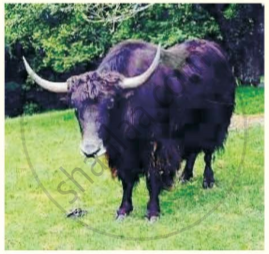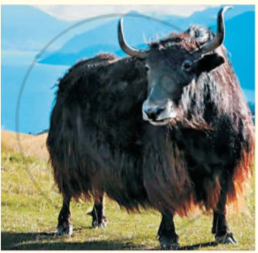Advertisements
Advertisements
Question
Duties and privileges of an Environment Monitor.
e.g. You must ensure that the campus is clean.
Did you know?
should and ought to have similar meanings. They show obligation or duty. However there is a slight difference in meaning.
ought to has an objective meaning whereas should is more subjective.
We ought to / should save water.
We ought to save money but we are unable to. (In this sentence should will not be appropriate.).
Solution
You must ensure that the campus is clean. You must keep a vigil on the greenery of the campus while coming in and going out. You must report to the teacher if any student throws a plastic wrapper of chocolates, toffees, biscuits etc. Before that you can ask the errant to desist from throwing such bits of plastic here and there. You must ensure that the trees, hedges and flower plants are in a good condition and are properly taken care of by the gardeners. You can ask the gardeners to prune the bushes and trees wherever they are needed. At no point you must allow the degradation of the environment ……
APPEARS IN
RELATED QUESTIONS
Answer the following question:
How did Harold come to know that his father was a boxer?
Answer the following questions:
‘I make the netted sunbeam dance’. What does ‘the netted sunbeam’ mean? How does it dance?
On the basis of your understanding of the poem, answer the following question
by ticking the correct choice.
All the world's a stage is an extended metaphor for________.
Imagine that you are conducting a research on the conservation of a few animal species in India. You have been asked by the Wildlife Trust of India to prepare a report on the future of the YAK that lives in the Ladakh region of the Himalayan mountains . In groups of four, discuss the issue and make notes for your report. Refer to the Question 2 and the information in the box given here.

| DOMESTIC YAK |
| herd animals 2-2.2 m tall |
| used in sports |
| kept for milk , fur , fibre , meat , drawing ploughs etc |

| WILD YAK |
| length:3-3. 4m |
|
habitat: treeless uplands
|
| killed for food |
| insulated from cold by dense, close matted under hair , shaggy outer hair |
| hunted for similar reasons as the domestic ones |
Within your group, discuss
• What is the problem? How has it arisen?
• What is the best way to preserve these species?
• Why do we need to preserve these species?
• What values need to be inculcated in the hearts of human beings? Why?
• What actions would you recommend to the World Wildlife Federation?
• How is global warming affecting these species?
An astronaut is speaking to the Mission Control from her capsule, describing geographical features she can see on Earth. Decide which features she is talking about. Fill in the gaps in the astronaut’s description below. Use the names given in the box with the correct determiners (a, an, the). (The first two have been done for you):
“There is very little cloud cover at
- The moment. I can see India right below me.
- The Andaman and Nicobar Islands are clearly visible, and of course there is
- ______ to the south. I can see where
- ______ flows into
- ______ A little higher are the glistening snows of
- _______but I can’t see
- _______itself. I can just make out
- _______ to the west. I’m passing over
- _______ right now. To the north, I can just see
- _______in the centre of the vast expanse of
- _______ In the far north, the ice of
- _______ is clearly visible.”
Look at the pairs below. Draw a sketch to show the difference in meaning, as in the example:

- (a) cloth
(b) a cloth - (a) rubber
(b) a rubber - (a) lamb
(b) a lamb - (a) glass
(b) a glass
Answer the following question by ticking the correct option.
The only change in Birlstone in years has been _________
Simple passive
Present Passive: “Where are they made?”
Match the words from columns A, B, C, and D to produce factually correct sentences. Write your answer in full sentences. (Remember to make your subject and verb “agree”.)
e.g. Coffee is grown in Brazil.
| A | B | C | D |
| Oranges | produced in | Brazil. | |
| Wine | worn in | Switzerland. | |
| Maruti cars | are | eaten in | Malaysia. |
| Coffee | manufactured in | France. | |
| The most expensive watches | is | grown in | India. |
| Uranium | mined in | the Middle East. | |
| Satay | South Africa. | ||
| Deshdashes | Morocco. |
Complete the following information about yourself
SURVAYS ON THE USE OF COMPUTERS
| Age: | |
| Boy I Girl: | |
| Hours spent at the computer: | |
| Hours spent playing games and chatting on the internet: | |
| Hours spent surfing the Internet/ websites for learning: | |
| Hours spent per week studying at home: | |
| Hours spent for leisure activities: | |
| If you reduce your time spent on the computer, how would you spend the extra time? | |
| I like to spend my time on the computer because: |
Read the following dialogue
Raghu : I think one of my snakes has escaped.
Sheela : Isn’t it dangerous? You really must stop collecting snakes, Raghu.
Raghu : But I like snakes – they are unusual pets.
Sheela : But I think it’s a dangerous thing to keep such pets.
Raghu : No, they’re not dangerous; they are really… .er… .quite friendly.
Sheela : Huh, snakes require a great deal of careful handling and are still a risk.
Raghu : i don’t mind. What matters is that I like them.
Sheela : Well, quite frankly, I hate them. They are awfully frightening to look at.
Raghu : Look, I am very careful and I handle them very gently. In fact, I don’t have many.
Sheela : Have you ever been bitten?
Raghu : Well, it’s true I’ve been bitten once or twice, but…
You are a friend who has overheard this conversation between Raghu and Sheela. Write to your sister reporting it. Give the conversation an interesting, unexpected or humorous ending. (The first part has been done for you.)
Janpath
5 January 2016
Dear Varsha
As you’re very interested in Raghu and his snakes, I thought I’d tell you about a conversation I heard between him and Sheela.
He told her he thought one of his snakes had escaped and, as usual, she told him to stop collecting them because they were dangerous. (Typical of Sheela, don’t you think?)
Pronouns
Direct speech indirect speech
| masculine | feminine | plural | |
| i | he | she | they |
| you | he | she | they |
| you | him | her | them |
| your | his | her | their |
| me | him | her | them |
| my | his | her | their |
| myself | himself | herself | themselves |
| we | they | ||
| use | them, their |
WORDS DENOTING TIME AND POSITION
When the reporting verb is in the past tense, certain words denoting nearness of
time and place are changed into words denoting distance.
It is treated necessary to change the words denoting nearness to words denoting
distance because, when we report the words of a person to somebody, the place
and time of the reporting is changed.
So the reported speech must be in line with the modified time and place.
| DIRECT SPEECH | INDIRECT SPEECH |
| this | that |
| these | those |
| now | then |
| ago | before |
| last night |
the previous night the night before |
| next day |
the following day the day after |
| today | the day |
| tonight | that night |
| yesterday |
the previous day the day before |
| tomorrow |
the next day the following day the day after |
| day before yesterday | the day before the previous day or two days before |
| day after tomorrow | the day after the next day ot in two days |
| week | the following week |
| now | then |
| here | there |
